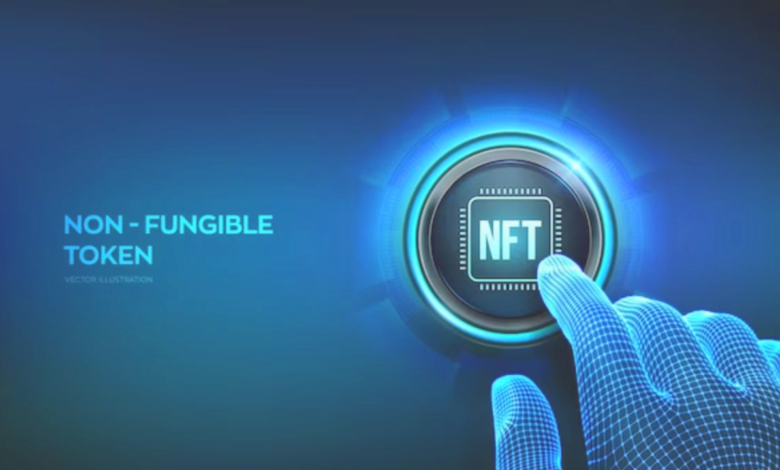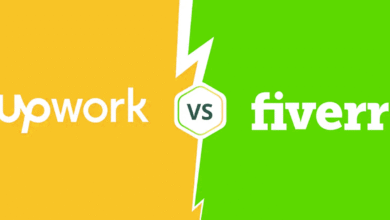Future of NFTs in Pakistan’s Digital Economy
Future of NFTs in Pakistan's digital economy present new opportunities for creators . Explore the future of blockchain at potential in Pakistan.

The Future of NFTs (Non-Fungible Tokens) has sparked a global revolution in digital ownership, art, and finance. In Pakistan, where the digital economy is rapidly expanding, NFTs present a transformative opportunity for creators, investors, and businesses. With increasing internet penetration, a young tech-savvy population, and a growing freelance workforce, Pakistan is well-positioned to embrace as a key component of its digital Future of NFTs. However, challenges such as regulatory uncertainty, limited blockchain awareness, and infrastructure gaps must be addressed to unlock their full potential. This article explores the evolving role of Future of NFTs in Pakistan’s digital economy, examining opportunities, challenges, and the road ahead.
As Pakistan moves toward a more digitized economy, Future of NFTs could play a crucial role in empowering artists, entrepreneurs, and investors. From digital art and gaming to real estate and identity verification, the applications of Future of NFTs are vast. While hurdles remain, proactive policies, education, and technological advancements could position Pakistan as a significant player in the global NFT marketplace. The Future of NFTs in Pakistan depends on collaboration between the government, private sector, and innovators to create an enabling environment for blockchain-based solutions.
Future of NFTs in Pakistan’s Digital Economy
NFTs in Global Impact
NFTs, or Non-Fungible Tokens, are unique digital assets verified using blockchain technology. Unlike cryptocurrencies such as Bitcoin, which are interchangeable, NFTs represent ownership of one-of-a-kind items, including digital art, music, virtual real estate, and even tweets. The global NFT market has seen explosive growth, with sales reaching billions of dollars, driven by high-profile auctions and celebrity endorsements. In Pakistan, the NFT space is still in its early stages but holds immense potential given the country’s thriving IT sector and creative talent.
Current State of NFTs in Pakistan
Pakistan’s digital economy is growing at an unprecedented rate, fueled by a young population and increasing internet accessibility. Freelancers, artists, and developers are beginning to explore NFTs as a new revenue stream. Platforms like Binance NFT, OpenSea, and local startups are enabling Pakistani creators to tokenize their work and reach global audiences. However, adoption remains limited due to a lack of awareness, regulatory challenges, and skepticism around digital assets. Despite this, early adopters are proving that NFTs can provide financial independence and global exposure.
Opportunities for Pakistani Artists and Creators
One of the most promising aspects of NFTs is their ability to empower artists. Traditional art markets often exclude emerging creators due to high entry barriers, but NFTs democratize access by allowing artists to sell directly to collectors. Pakistani digital artists, musicians, and content creators can monetize their work without intermediaries, ensuring fair compensation. For example, Shahzia Sikander, a renowned Pakistani-American artist, has successfully ventured into NFTs, setting a precedent for local talent. Additionally, NFTs can preserve cultural heritage by digitizing traditional art forms and making them accessible worldwide.
NFTs in Gaming and the Metaverse
The gaming industry is another sector where NFTs are gaining traction. Play-to-earn (P2E) games like Axie Infinity have shown how players can earn real income through in-game NFT assets. Pakistan has a burgeoning gaming community, with titles like Cricket Star and PakWheels Autosport gaining popularity. Integrating NFTs into gaming could open new revenue streams for developers and players alike. Furthermore, as the metaverse evolves, virtual Real estate and digital identities powered by NFTs could become valuable assets, offering Pakistanis new ways to engage in the global digital economy.
Challenges and Barriers to Adoption
Despite their potential, NFTs face several challenges in Pakistan. Regulatory uncertainty is a major hurdle, as the government has yet to establish clear guidelines on blockchain and digital assets. The State Bank of Pakistan (SBP) has previously imposed restrictions on cryptocurrencies, raising concerns about NFT legality. Additionally, limited blockchain literacy and high gas fees (transaction costs on Ethereum) deter small creators. Cybersecurity risks, including scams and fraud, also pose threats to inexperienced users. Addressing these issues will require collaboration between policymakers, tech experts, and educators.
The Role of Government and Private Sector
For NFTs to thrive in Pakistan, supportive policies and infrastructure are essential. The government could introduce blockchain-friendly regulations, tax incentives for digital creators, and educational programs to raise awareness. Private sector initiatives, such as NFT marketplaces tailored for Pakistani users and blockchain incubators, can accelerate adoption. Financial institutions could explore NFT-backed loans, while universities might offer courses on blockchain technology. A multi-stakeholder approach will be crucial in building a sustainable NFT ecosystem.
Future of NFTs Prospects
Mainstream Adoption Through Education & Awareness
The future growth of NFTs in Pakistan hinges on increasing blockchain literacy among artists, entrepreneurs, and the general public. Workshops, university courses, and government-led awareness campaigns can demystify NFTs and encourage wider participation. As more Pakistanis understand the technology, adoption will shift from early adopters to mainstream users.
Regulatory Clarity & Government Support
For NFTs to thrive, Pakistan must establish clear legal frameworks addressing taxation, intellectual property rights, and cryptocurrency transactions. Proactive policies such as sandbox regulations for blockchain startups and incentives for digital creators could position Pakistan as a regional hub for NFT innovation.
Expansion Beyond Digital Art
While NFTs are currently popular in art and collectibles, their applications in Pakistan could expand to real estate tokenization, academic credential verification, and even supply chain management. This diversification will drive long-term sustainability in the NFT market.
Growth of Local NFT Marketplaces
International platforms like OpenSea dominate the NFT space, but localized Pakistani marketplaces—with lower fees, Urdu support, and easy payment methods could boost domestic participation. Such platforms may also promote Pakistani culture and heritage through digital collectibles.
Read More: The Rise of Virtual Education Through Metaverse Platforms
Conclusion
The Future of NFTs in Pakistan’s digital economy presents both exciting opportunities and significant challenges that will shape the country’s technological landscape. As blockchain adoption grows, Future of NFTs could revolutionize how Pakistani creators monetize their work, how businesses establish digital ownership, and how investors participate in the global digital asset market. However, realizing this potential requires addressing critical barriers including regulatory clarity, technological infrastructure, and financial inclusion. With proper frameworks and education, Pakistan could position itself as a competitive player in the Future of NFTs space, leveraging its young population and thriving IT sector to drive innovation.
Looking ahead, the Future of NFTs in Pakistan’s digital economy will largely depend on collaborative efforts between policymakers, tech entrepreneurs, and the creative community. Government support through blockchain-friendly regulations and digital literacy initiatives could accelerate mainstream adoption, while private sector innovation can develop localized NFT solutions tailored to Pakistan’s market needs. As global interest in Web3 technologies continues to rise, Pakistan has a unique opportunity to harness Future of NFTs not just for economic growth, but also for preserving cultural heritage and empowering digital creators. The coming years will be crucial in determining whether Pakistan can successfully integrate NFTs into its digital transformation journey.
FAQs
What are NFTs, and how do they work?
NFTs are unique digital tokens stored on a blockchain, representing ownership of digital or physical assets. They cannot be replicated, making them valuable for authentication.
Can Pakistani artists sell NFTs internationally?
Yes, Pakistani creators can list NFTs on global platforms like OpenSea and Rarible, reaching buyers worldwide and earning in cryptocurrencies.
Are legal in NFTs in Pakistan’s?
Currently, there are no specific laws against NFTs, but cryptocurrency regulations remain unclear. The government has yet to issue definitive guidelines.
How can beginners start investing NFTs in Pakistan’s?
Beginners should research NFT marketplaces, use secure wallets like MetaMask, and start with small investments while learning about blockchain risks.
What industries in Pakistan could benefit from NFTs?
Beyond art and gaming, NFTs could revolutionize real estate, education certifications, ticketing, and even legal document verification in Pakistan.











